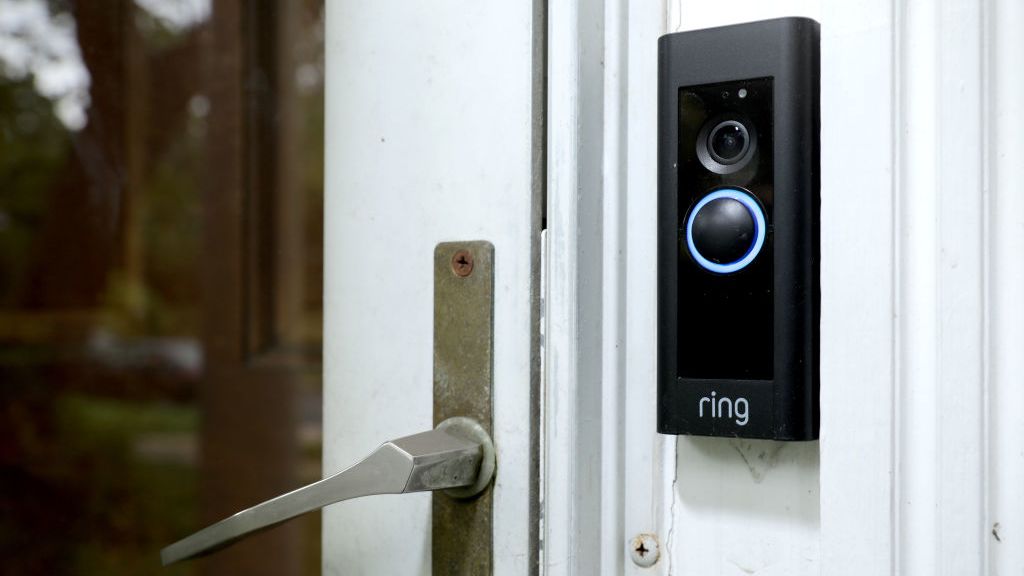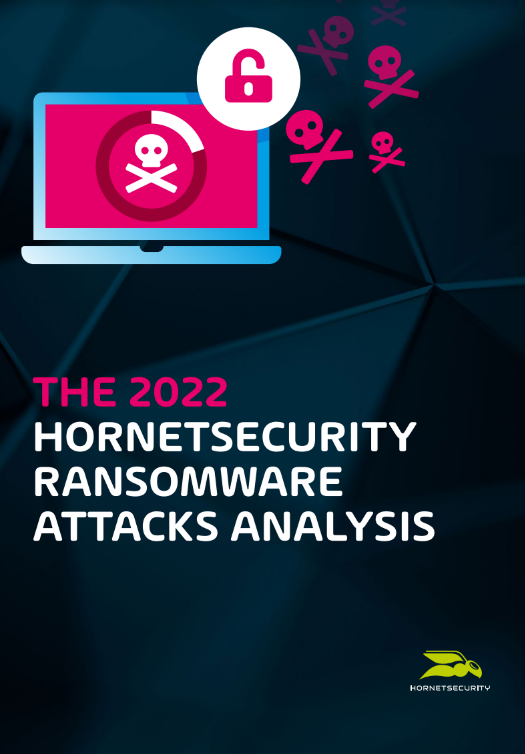Ring: 'No indication of ransomware event' after ALPHV claims attack
The ransomware group has claimed to be in possession of stolen Ring data, but provided no evidence


Sign up today and you will receive a free copy of our Future Focus 2025 report - the leading guidance on AI, cybersecurity and other IT challenges as per 700+ senior executives
You are now subscribed
Your newsletter sign-up was successful
Amazon-owned smart security firm Ring has denied claims that the ALPHV ransomware group has accessed its systems after it threatened to leak data from the firm online.
ALPHV claimed to be in possession of Ring data on 13 March, but did not make a ransom demand on its victim blog.
“There's always an option to let us leak your data,” ALPHV stated, offering no other detail about the alleged attack.
At the time of writing, the group has not made any further posts outlining the nature of the information, nor a timeframe for its release.
“We currently have no indications that Ring has experienced a ransomware event,” a Ring spokesperson told IT Pro.
Malware and source code collective vx-underground tweeted that Ring has since informed outlets it believes a third-party vendor has suffered a data breach.
Ring doorbells record video when motion is detected, and while they are popularly used for private residences the company also has a Ring for Business line to provide firms with door surveillance.
Sign up today and you will receive a free copy of our Future Focus 2025 report - the leading guidance on AI, cybersecurity and other IT challenges as per 700+ senior executives
Ring Footage is encrypted, and owners have the option to enable end-to-end encryption for video which restricts access to enrolled mobile devices via a pass key.
In 2022 it was discovered that Ring gave footage from its devices to police departments around the US on 11 separate occasions without user consent. The firm clarified that it did this only in emergency occasions where it judged that it should disclose "without delay", such as those where someone was facing serious physical injury or death.
What is ALPHV?
The threat group ALPHV, sometimes referred to as BlackCat, first gained prominence in 2021 as one of the first ransomware groups using the Rust programming language, a move that other ransomware gangs such as recent FBI targets Hive have since replicated.
Since its launch, the group has claimed the attack on Swissport, a massive cyber attack on Bandai Namco, and the hacking of European energy firms owned.
Its methodology in claiming the alleged Ring breach is typical of the group’s double extortion strategy, in which attackers encrypt victims’ data and threaten to publish exfiltrated copies of the data online.
RELATED RESOURCE

The 2022 Hornetsecurity ransomware attacks analysis
Stay ahead of the curve with the latest industry trends from our cyber security experts
Double extortion ransomware has become a fast favourite amongst threat groups, with a recent example found in LockBit’s 44GB leak of Royal Mail data.
The postal firm had declined to pay LockBit’s “absurd” asking price of £65 million, prompting the group to publish the entire negotiation history between the two parties online.
Microsoft Defender Threat Intelligence published an extensive post on the group in June 2022, warning of its specific attack vectors and associated attacks.
The headline of this article has been changed to reflect the fact that ALPHV, not Cl0p, is the group that alleges to have stolen Ring data.

Rory Bathgate is Features and Multimedia Editor at ITPro, overseeing all in-depth content and case studies. He can also be found co-hosting the ITPro Podcast with Jane McCallion, swapping a keyboard for a microphone to discuss the latest learnings with thought leaders from across the tech sector.
In his free time, Rory enjoys photography, video editing, and good science fiction. After graduating from the University of Kent with a BA in English and American Literature, Rory undertook an MA in Eighteenth-Century Studies at King’s College London. He joined ITPro in 2022 as a graduate, following four years in student journalism. You can contact Rory at rory.bathgate@futurenet.com or on LinkedIn.
-
 ITPro Best of Show NAB 2026 awards now open for entries
ITPro Best of Show NAB 2026 awards now open for entriesThe awards are a fantastic opportunity for companies to stand out at one of the industry's most attended shows
-
 Mistral CEO Arthur Mensch thinks 50% of SaaS solutions could be supplanted by AI
Mistral CEO Arthur Mensch thinks 50% of SaaS solutions could be supplanted by AINews Mensch’s comments come amidst rising concerns about the impact of AI on traditional software
-
 Ransomware gangs are using employee monitoring software as a springboard for cyber attacks
Ransomware gangs are using employee monitoring software as a springboard for cyber attacksNews Two attempted attacks aimed to exploit Net Monitor for Employees Professional and SimpleHelp
-
 Ransomware gangs are sharing virtual machines to wage cyber attacks on the cheap – but it could be their undoing
Ransomware gangs are sharing virtual machines to wage cyber attacks on the cheap – but it could be their undoingNews Thousands of attacker servers all had the same autogenerated Windows hostnames, according to Sophos
-
 Google issues warning over ShinyHunters-branded vishing campaigns
Google issues warning over ShinyHunters-branded vishing campaignsNews Related groups are stealing data through voice phishing and fake credential harvesting websites
-
 The FBI has seized the RAMP hacking forum, but will the takedown stick? History tells us otherwise
The FBI has seized the RAMP hacking forum, but will the takedown stick? History tells us otherwiseNews Billing itself as the “only place ransomware allowed", RAMP catered mainly for Russian-speaking cyber criminals
-
 Everything we know so far about the Nike data breach
Everything we know so far about the Nike data breachNews Hackers behind the WorldLeaks ransomware group claim to have accessed sensitive corporate data
-
 There’s a dangerous new ransomware variant on the block – and cyber experts warn it’s flying under the radar
There’s a dangerous new ransomware variant on the block – and cyber experts warn it’s flying under the radarNews The new DeadLock ransomware family is taking off in the wild, researchers warn
-
 Hacker offering US engineering firm data online after alleged breach
Hacker offering US engineering firm data online after alleged breachNews Data relating to Tampa Electric Company, Duke Energy Florida, and American Electric Power was allegedly stolen
-
 Cybersecurity experts face 20 years in prison following ransomware campaign
Cybersecurity experts face 20 years in prison following ransomware campaignTwo men used their tech expertise to carry out ALPHV BlackCat ransomware attacks